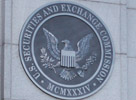
The long rule-making process following the passage of the Dodd-Frank Wall Street Reform and Consumer Protection Act continued this week at the Securities and Exchange Commission, or SEC. Included in Section 1502 of the Wall Street reform bill is a provision that requires companies using the 3TG materials (tin, tungsten, tantalum, and gold) to disclose and report to the commission whether these minerals in their products come from the Democratic Republic of Congo or an adjoining country. If so, companies have to, among other things, describe the measures taken to exercise due diligence on the source and chain of custody of the minerals in their products. During Wednesday’s open meeting, the SEC considered whether to adopt implementing rules for conflict minerals proposed by staff.
Prior to hearing comments from the commission’s staff, Chairwoman Mary Schapiro expressed her gratitude for the multitude of helpful comments the SEC received regarding the conflict minerals provision. Late last month Enough and its Raise Hope for Congo campaign delivered a petition to the SEC containing over 2,300 signatures from concerned consumers asking the SEC to ensure that robust rules are implemented with respect to Section 1502. Enough Co-founder John Prendergast along with other Enough staff also met with Chairwoman Schapiro to discuss the forthcoming regulations. According to Schapiro, the commission considered these and other comments to be very beneficial during their deliberations.
John Fieldsend from the SEC’s Division of Corporate Finance presented the staff’s three-pronged approach to determining which companies will be required to disclose and report their sourcing of 3TG materials. First, the rules would apply to companies who are already required to file reports under the Exchange Act and those who manufacture or contract manufacturing of products in which 3TG materials are “necessary to the functionality or production” of such products. This means even companies like Wal-Mart and Target who contract out the manufacturing of their brand name products will fall under the purview of these rules.
If a company meets this criterion, the reporting process would require the company to follow the next two steps: Under the second prong, in its annual report a company would disclose whether its 3TG materials originated in Congo or an adjoining country. A “reasonable country of origin inquiry” – conducting the due diligence necessary to map the flow of the 3TG materials in its supply chains – would determine the source of its minerals. If they can be traced back to Congo or its neighboring countries, the company would need to report this information to the SEC and make that report available to the public on the company’s website.
Thirdly, if the 3TG materials come from Congo or if a company is unable to reasonably conclude that they do not, the company is required to conduct due diligence on the source and chain of custody of its minerals, including by commissioning an independent audit. This report would include a description of their products that are not conflict free, the facilities used to process those minerals, the minerals’ country of origin, and the mine of origin of the minerals.
Additionally, the commission’s staff recommended that companies who use 3TG materials from recycled or scrap sources rather than from mined sources would have to conduct due diligence on the origin of their minerals as well. This reporting, backed by an independent audit, would need to reasonably conclude that the materials were derived from recycled or scrap sources in order to be deemed conflict-free.
Following Fieldsend’s presentation, the five commissioners voted unanimously to endorse the recommendations presented.
However, the rule-making process is still not complete. Before adjourning the commission reiterated its appreciation of previous comments received and asked for public comments on the rules that were presented Wednesday. The public will have until January 31, 2011, to submit comments before the SEC meets again to determine whether to adopt the proposed rules.
There is still a long way to go to end the conflict in eastern Congo. Ensuring that companies are fully accountable for their supply chains is only one step in a process that includes the implementation of a mineral certification scheme and meaningful reforms aimed at other root causes of conflict in the region. You can continue to let the SEC know the importance of implementing robust regulations on companies who use conflict minerals by posting on their website, and as a consumer you can tell companies how much you desire conflict-free products through Raise Hope for Congo’s current online action.
Photo: SEC crest

